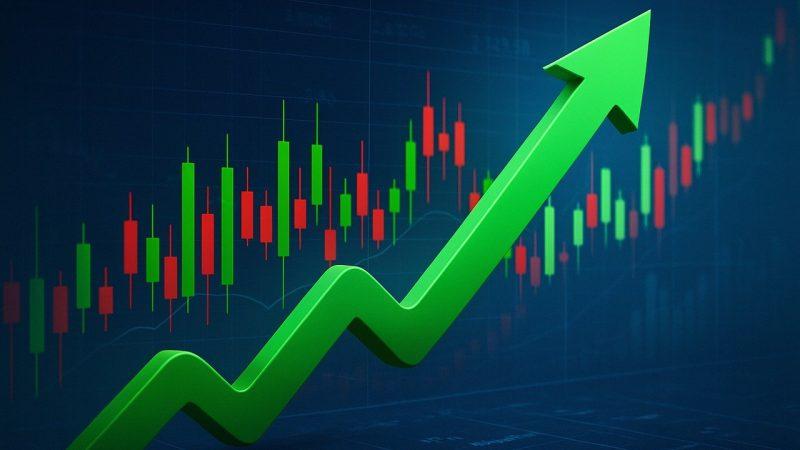Top 15 books for getting location-independent-income
In my opinion, every man or woman who wants to improve their lives should be an avid reader.
Read often, read broadly, and you’ll become a better and bigger person.
The combined knowledge of men and women great than us is at our finger tips, often at the negligible cost of a few bucks.
I personally have been following a regime of reading non-fiction during the day (taking notes when applicable) and fiction at night to fall asleep more easily – and because I thoroughly enjoy it.
In fact, I always have “Read X books this year” as one of my yearly goals, and even though I don’t think it is required to make it a goal because I’d do it anyway, I still like hitting this goal by seeing my number creep up book after book.
Right now, I’m at 483 books read (in about 7 years, when I bought an e-reader and started tracking) and my goal is to hit 500 by the end of the year.
Anyway, in this article I’ll give you a list of some of the best non-fiction books I’ve had the pleasure of reading – those precious gems which I’ve enjoyed reading and which enriched my life – and some of those have even profoundly and radically changed it.
I’ll keep the list short because I only want to include those books which are related to the niche of this website – people who want to escape the West and want to build up their own sources of income.
Check out my new book, available on Amazon!
Get the bookHow I Found Freedom In An Unfree World (Harry Browne)
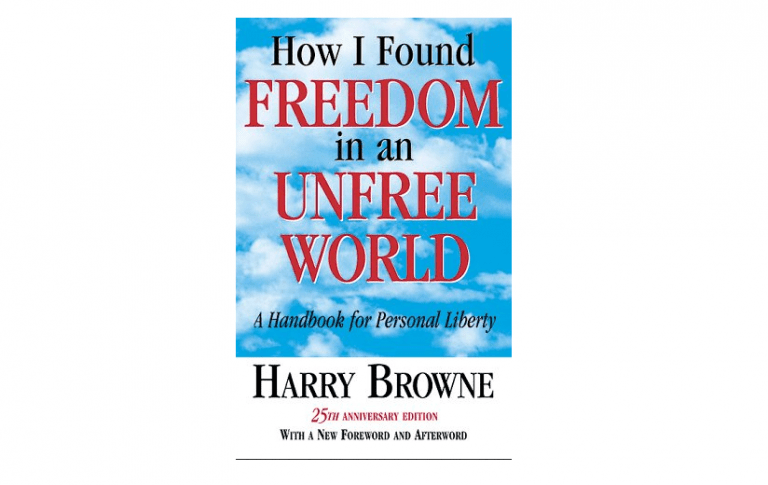
How I Found Freedom in An Unfree World is my favorite non-fiction book.
Written in 1973 (!), this book details the concept and importance of personal freedom, and how you can attain it.
Browne says that freedom is living your life the way you want to.
Sounds obvious, right?
But how many people do you know who live like this?
In fact, are you living your life the way you want to live?
He makes the point that people either aren’t aware of alternatives for the “societally accepted norms” they are suffering under, or that they have accepted them as normal and do not see them as anything to get rid of.
Browne shows why you aren’t free, how you can become free, and what a free life looks like.
I’ll be writing a review of this book soon, so I’ll refrain myself from explaining it too much – but rest assured that if you’re even the slightest bit interested in these concepts, HIFFIAUW is an absolute must-read.
The Unchained Man (Caleb Jones)
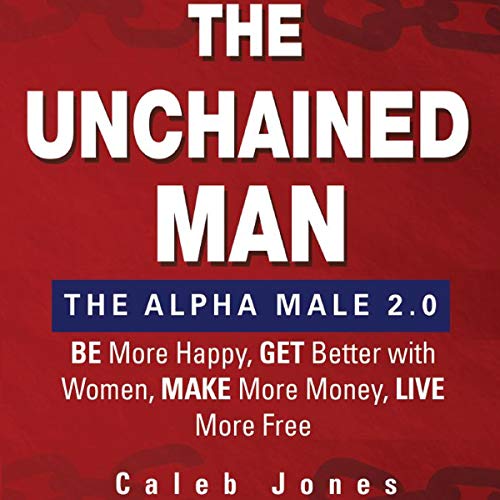
This book has had a profound impact on my life.
It’s only aimed at a small percentage of men, and in The Unchained Man, Caleb Jones explains how most men are trapped in a mental prison of society’s making, full of outdated biological impulses and damaging socially accepted norms.
Living like this isn’t meant to make men happy – and it overwhelmingly doesn’t.
Jones explains how you can become an Alpha Male 2.0 and attain long term, consistent happiness – something he (and I) feel is the pinnacle of the purpose of your life.
He brings up things like non-monogamy, finding a mission in life, not caring what others think, and how to get a location independent income.
It’s obvious he has taken inspiration from the aforementioned How I Found Freedom, applied it to his life, improved on some aspects, and added some of his own (like the non-monogamy).
Highly recommended.
The 4-Hour Workweek (Timothy Ferris)
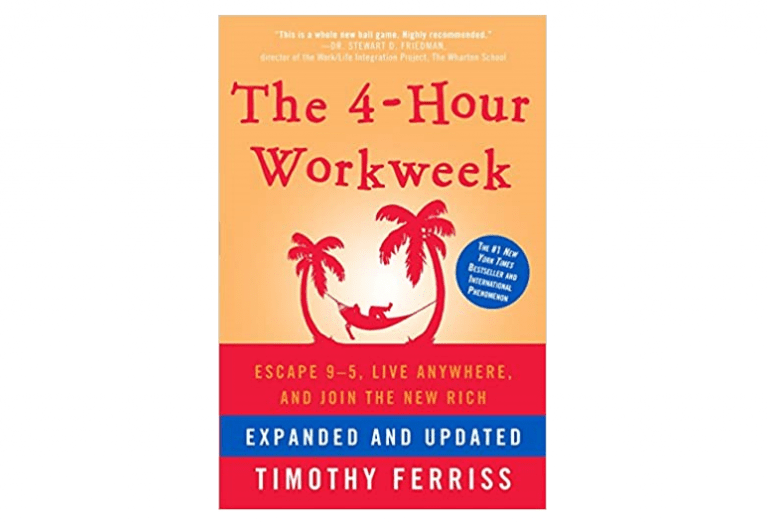
I’m sure you’ve heard of The 4-Hour Workweek by now.
This book shows you first that you are in a rat race (society and its restrains and obligations on an individual) and then how to get out of it by setting up (online) businesses and then outsource most of the grunt-work to virtual assistants, so you can earn money wherever you are.
While many following books have obviously taken inspiration from The 4-Hour Workweek and have improved upon its concepts, I would suggest you definitely read this one first.
It’s a must if you want to earn (semi-) passive income and travel the world while you’re still young.
The E-Myth Revisited (Michael E. Gerber)
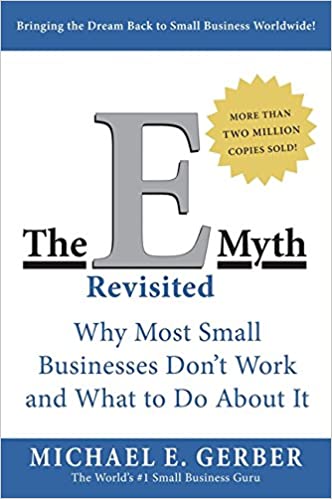
Michael E. Gerber was pretty ahead of his time, and in the ‘90s already he was advocating how to set up your own business which you can sell, or step completely out of, or replicate: a turn-key-business.
He basically explains how to become a successful entrepreneur, what the dangers are, and so on.
Not everything is completely applicable to online businesses (which I would recommend), but it’s still completely worth the read.
Company of One (Paul Jarvis)
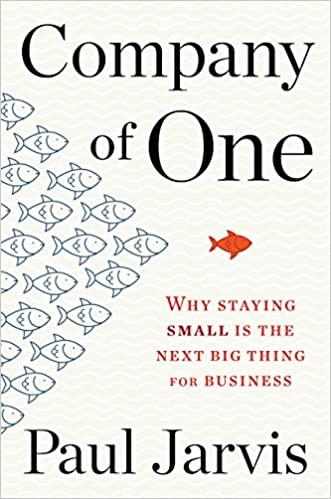
Jarvis explains why keeping your own company small is the best way to move forward for the average business-owner.
Make sure it’s profitable, within limits you’ve imposed.
He makes the argument that a lot of start-ups try to grow too big too soon, and that they go down because of it.
It’s better to really focus on your niche, and to solidify your base.
Grow your business up to a self-imposed point (most commonly a monthly income goal), and then make sure you can maintain this.
And instead of scaling it too fast by getting greedy, you’re better off creating another small business and doing the same thing.
The $100 Startup (Chris Guillebeau)
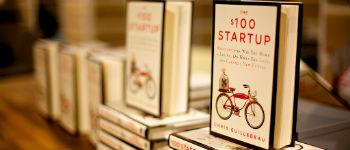
Want to start your own business but think you cannot do this without spending a lot of money?
Sounds like an excuse to me, because buying a website domain and hosting costs around $25 to $50 dollars or so for a year.
Chris Guillebeau shows you how to start up a “micro business” with a limited budget, which you can use to produce income very soon.
This book is fun to read because the author uses a lot of true (?) stories to illustrate his points.
I’m a fan of the entire premise of building up your own sources of location independent income with a limited budget, so I can totally recommend this book.
Time Power (Brian Tracy)
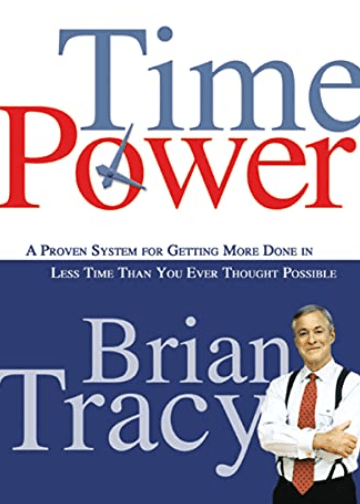
Time Power deals with time management and how to use your time as productively as possible.
Tracy, a pretty damn famous and brilliant man, explains how to do this using a specific system, which can help you increase your productivity and income as soon as possible.
What you can get out of this book is a reliable way to get two extra productive hours a day by using his techniques.
Two hours a day is enough to start your own business and grow it over time into a source of location independent income.
Get Smart! (Brian Tracy)
Another one by Brian Tracy (he’s written a LOT of books, around 80), and in this one he teaches you how rich and successful people think and act.
You’ll also learn how you can change your habits and your attitude, and mirror them to those of people who have already attained success.
Two other books by Brian Tracy which I can really recommend are Eat that Frog! and Maximum Achievement.
I’m currently reading the latter, and it’s most likely going to be one of my favorite books.
The Little Book of Common Sense Investing (John C. Bogle)
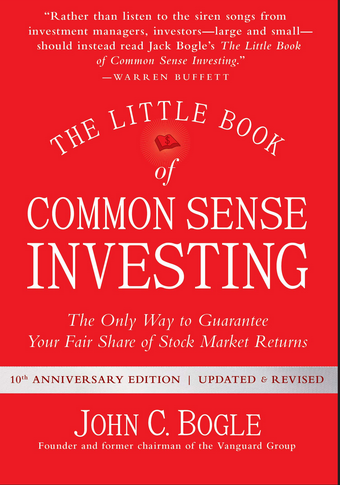
John Bogle invented the index fund, and in this little book he explains why he did this, and why a broadly diversified index funds is the best method for the average investor to get the best return from the market in the long run.
He explains this very clearly using verifiable (yes, I checked most of them) graphs, numbers and statistics, making his point of view very obviously correct.
It’s a pretty short read, and one I can fully recommend for anyone interested in investing.
Money Master the Game (Tony Robbins)

Tony Robbins is a pretty famous guy in the US, and has already sold millions of books about personal development, psychology, and so on.
In MMtG, he explains how you can attain financial freedom, based on a 7-step-plan.
He’s obviously done plenty of research for this book, including tons of interviews with legendary investors such as Warren Buffett, Ray Dalio and John Bogle.
It’s a whopper of a book, with more than 500 pages of financial information which is mostly aimed at Americans, but has value for everyone.
MMtG holds a special place on my book shelf (I actually bought the physical copy) because this was the book at got me into investing, and setting up my own financial websites.
Rich Dad Poor Dad (Robert Kiyosaki)
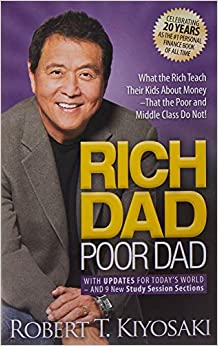
Believe it or not, but Kiyosaki’s Rich Dad Poor Dad is the #1 Personal Finance book ever, based on sales.
He uses a (probably made up) story about having two dads in his life, who both gave him (financial) advice.
His real father was the “poor dad”, a highly educated man who had to work for money his entire life.
He earned money, but because his mind was full of socially accepted “wisdom”, he didn’t end up with a lot of money, despite his educational level and his high salary.
His friend’s father was the “rich dad”, someone without much education, who started his own companies, and had a completely different philosophy towards money than the “poor dad”.
The “rich dad” taught about how to make money work for you, by investing in income-producing assets such as rental real estate, your own business, dividend-yielding stocks and funds and so on.
Despite the questionable veracity of the book, I can still wholeheartedly recommend RDPD, because the wisdom it teaches is something I am fully convinced of.
Why “A” Students Work for “C” Students (Robert Kiyosaki)
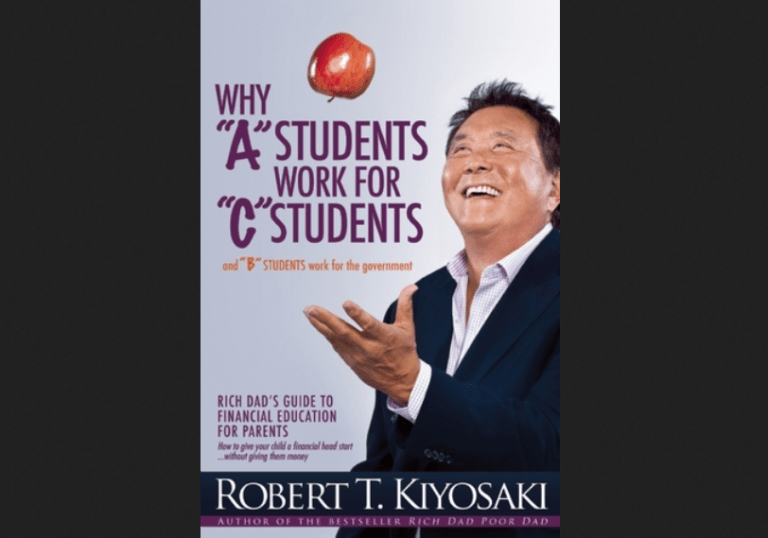
This is an educational financial book by the same author of Rich Dad, Poor Dad.
Kiyosaki points out why financial education is so important, both for you and for your children.
His view is that the ancient advice of “study hard, get good grades so you can get a degree and you can get a good job” isn’t just outdated, but also statistically speaking not a good way to become financially independent.
Teaching this to your children would be detrimental to their future.
“A” students were those who always had good grades and studied had to get a good job.
“C” students are capitalists, those who put more emphasis on things they didn’t learn in school, such as starting their own businesses – and hiring “A” students to work/make money for them.
Total Recall: My Unbelievably True Life Story (Arnold Schwarzenegger)
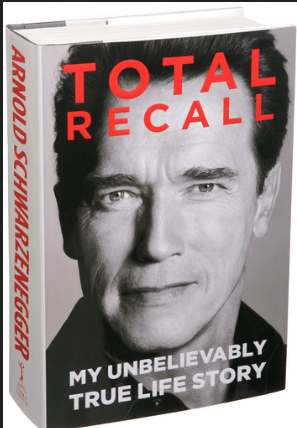
A rather odd entry in this list, I admit, but Arnie’s autobiography is extremely motivating, inspiring and really urges you to take action with your life.
Arnold Schwarzenegger is one of the most successful men in contemporary history.
Sure, he’s not a billionaire, but can you name anyone else who moved to another country while barely speaking the language, and then attain the top of their field in 3 completely different sectors?
And if that wasn’t enough, he has also founded real estate companies, written books, sold fitness products, and so on.
The Creature From Jekyll Island (G. Edward Griffin)
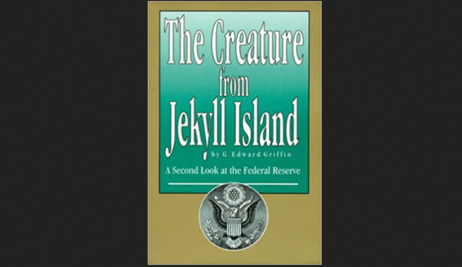
The Creature From Jekyll Island is probably one of the first books I’ve read that really points out the rot and corruption in the Western banking system – most specifically the United States.
It’s written in 1994 and Griffin makes a convincing argument that the US Federal Reserve is a banking cartel and an instrument of war and totalitarianism.
You’ll also learn about the history of money, which systems worked and which didn’t.
You can get a lot of information about the nature of money, and central banks, the most elaborate and widespread scam in the history of mankind, a cause of many wars and inflation.
Once you’ve read this book with an open mind, you won’t look at the world with the same eyes again.
Principles for Dealing with the Changing World Order (Ray Dalio)
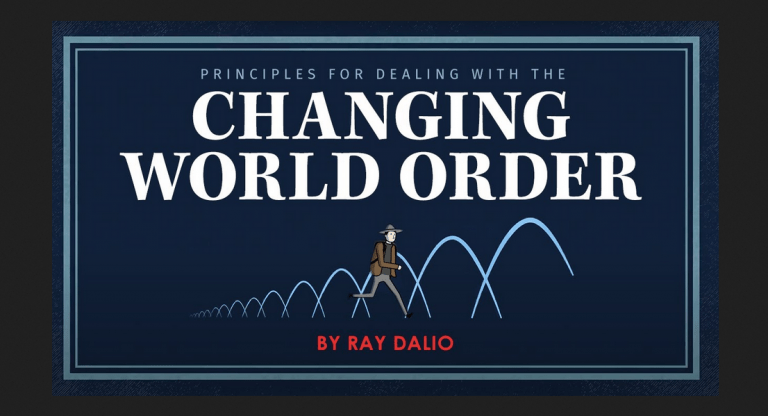
A while ago, I already wrote an article about Ray Dalio’s book, so you might know how I feel about it.
Dalio gives a very clear (and bleak and shocking, if you’re unaware of this subject matter) exposition on why empires rise and why they fall.
He surmises that the United States is in its last stage, the decline – something that everyone reading this website is probably aware of.
Regardless, it’s very nice to see how a brilliant and well-known figure like Ray Dalio shares the view that the Western world (well, he just says the United States, but as I’ve stated before, most Western nations are inextricable from the US) is declining.
A must read if you’re tired of my incoherent ramblings on this subject and would like to get a statistical, historical and completely factual approach to the collapse of the West – with a very similar conclusion.
Check out my new book, available on Amazon!
Get the book
